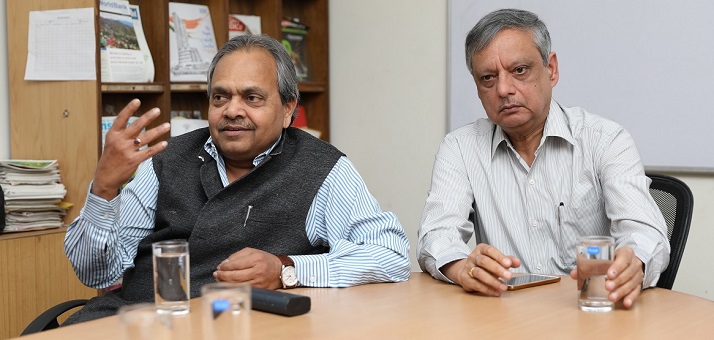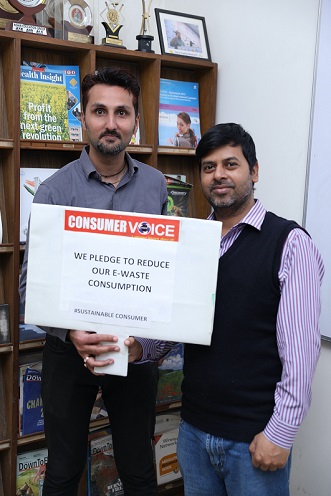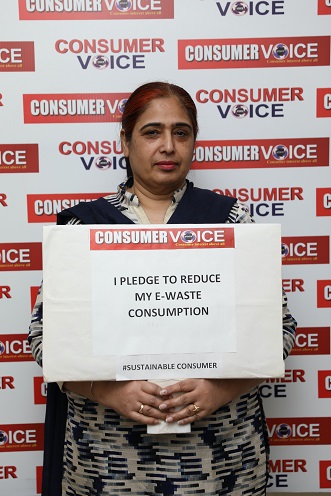World Consumer Rights Day Workshop on e-waste

Consumer Voice, a New Delhi based non-profit organization that works to spread consumer awareness organised a workshop on Electronic Waste or e-waste in its office on 13th March 2019. This workshop was part of World Consumer Rights Day (WCRD) which is celebrated on 15th March every year. The theme of WCRD 2020 was ‘Sustainable Consumer’. Like a trustworthy whistle-blower on the matter related to consumer education and awareness, the focus of the workshop was on educating consumers on responsible e-waste disposal.
Ashim Sanyal, COO at Consumer VOICE introduced the subject to the gathering and shared his views on the same. Satish Sinha, Associate Director at Toxics Link addressed the gathering of professionals from diverse backgrounds.
Mr Sinha spoke on the lack of responsible e-waste disposal in our country and the right to repair our electronic gadgets among others. He said India is unlike the other countries where consumers enjoy the #righttorepair. A consumer in those countries can go to the manufacturers and ask for a certain product to get repaired. In India, he cited the example of the OEM (Original Equipment Manufacturer) industry in particular due to whom the consumer after using a car or certain electronic product for certain years, can’t repair such products when the need appears. In most of the cases, the manufacturer shows the non-availability of spare parts. In such a scenario, the consumer facing such a situation compels to buy a new product instead of getting the product repaired. One can very well understand how this results in the accumulation of e-waste.

Likewise, mobile manufacturing companies are also responsible for not encouraging consumers on using repaired products, rather they encourage consumers to buy new products.
Sinha also spoke about how the CFL light manufacturing industry was using mercury in the CFL lights in India. Sinha cited the examples of several developed countries where they have a stringent regulation of using only 5 ml mercury per CFL light. Here in India, the mercury usage was much higher at around 15-20 liter per CFL. However, the scenario is much better now with adequate intervention.
Elaborating the need for sustainable consumption Sinha said, “As a responsible consumer we all have to contribute towards responsible disposal of e-waste and demand for the rights which are not in existence particularly in India such as the right to repair. He also stressed the need for regulation to tackle the problem of e-waste disposal thus contributing towards a sustainable future.”


